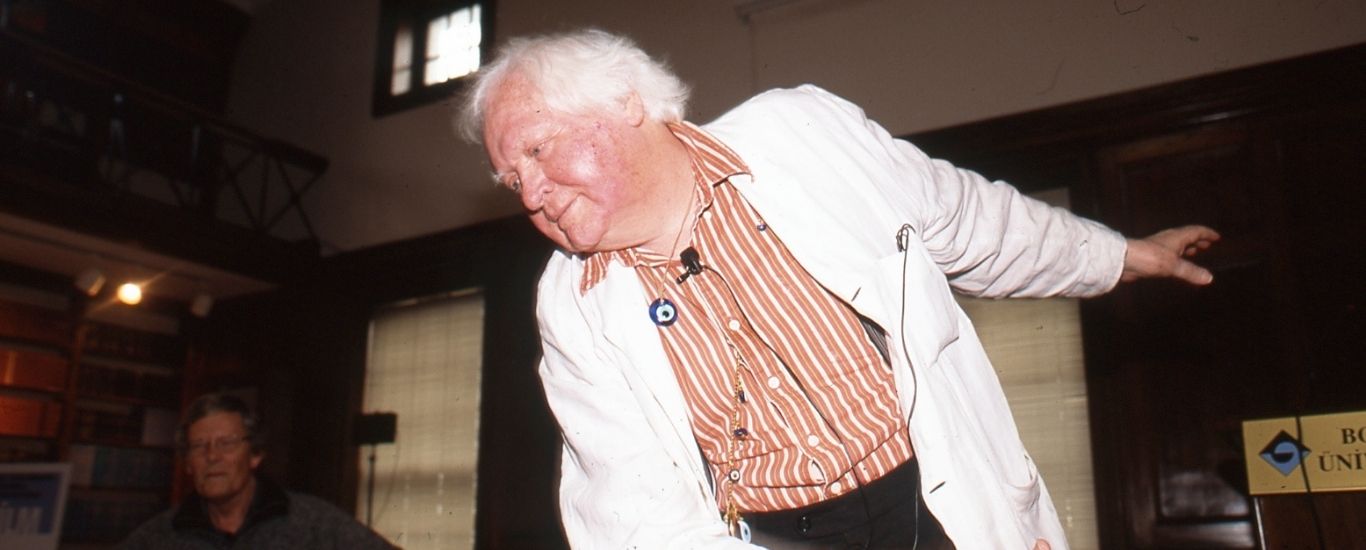Henry Kenneth Alfred Russell was born on 3 July 1927 in Southampton, England. As a child, his closest relationship was with his mother, who frequently escorted him to the cinema after school. At age ten, Russell was given a film projector and his love of movies intensified.
At age fifteen, Ken was sent to Pangborne Nautical College, but he found the codes of discipline overly strict. Films were to provide solace during his brief time there, as he would sneak out on weekends to attend the local cinema. Although Russell's experience at Pangborne was less than successful, he continued his nautical pursuits by entering the Merchant Navy as sixth officer on a cargo ship bound for the Pacific.
In his early twenties, Russell turned his attention to ballet and classical music. For nearly five years he attended dance school and toured with dance troupes, yet in the end he woke up to the fact that he was not a very good dancer. Then Russell found photography, and it seemed as if he found his niche. Working freelance, he acquired the reputation as an imaginative fashion photographer. In his spare time, Russell started to make some black and white silent films. He took one of these films, Amelia, to the BBC who were impressed by its promise. It was at the BBC that Russell landed a job on the Monitor program, a show on the arts. Overall, Russell would make 32 films for the BBC Monitor and Omnibus programs and had established a reputation of being one of the finest directors working in British television
Delius: Song of Summer was the best of a series of biographical films directed by Ken Russell for the BBC in the 1 960s. Before tackling Delius, Russell had made films on Elgar (1962), Bartok (1964), Debussy (1965) and other subjects, not exclusively related to music such as Le Douanier Rousseau (1965), Isadora Duncan (1966) and Dame Gabriel Rossetti (1967).
While working at the BBC, Russell made two films for theatrical release, French Dressing (1964) and Billion Dollar Brain (1967). Neither film contain either the themes or directorial style for which he is now known, which perhaps helps to explain why they were both critical and commercial flops. However, at age 42, Russell was given another shot at directing outside of television with Women in Love (1969). This was a make-or-break work for his future as a film (rather than television) director. Not only did this film represent a break from television to the bigger stage of theatrical distribution, but it also marked a major turning point in Russell's stylistic evolution as director.
After Women in Love, Ken Russell established a reputation as the enfant terrible of British cinema. The Music Lovers (1971) continued his success and The Devils (1971) established him as a great mainstream director. At one point his last three films were showing at the same time on London's West End. From then on, movies with bombast and fury, garish sets and costumes, blatant in-your-face symbolism, and wildly excessive flights of fancy became Russell's trademark.









